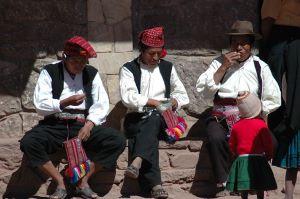A Nebraska Republican has appealed a court decision upholding voter-approved medical marijuana initiatives, Colombia bombards the Gulf Clan, and more.

Nebraska Sore Loser Tries Again to Annul Will of the Voters. Republican politicians in the Cornhusker State just cannot accept that voters chose to embrace a paired set of medical marijuana initiatives in last month's elections, and now one of them, former state Sen. John Kuehn, has appealed a court ruling that let the initiative results stand.
Kuehn had argued unsuccessfully that the initiatives, one of which would protect patients and the other of which would set up a state medical marijuana system, were passed unlawfully because the courts had not examined their legality. He noted that marijuana remains illegal under federal law, writing that, "The measures attempt to legalize action that state law cannot legalize."
Kuehn's lawsuit named five people, including Gov. Jim Pillen (R) and Secretary of State Bob Evnen (R). Kuehn had demanded that Pillen not approve the measures and gave him a December 10 deadline to respond. Pillen has not done so.
"The Governor did not respond and therefore refused to accept the terms of the demand letter," Kuehn's appeal noted.
Nebraskans for Medical Marijuana spokesperson Crista Eggers scoffed at Kuehn's efforts: "48 other states in our Nation have passed laws legalizing some form of cannabis or its derivatives. With 70% support at the polls, Nebraska voters made it overwhelmingly clear that they support safe and regulated medical cannabis access. The assertion that Nebraska’s new medical cannabis laws violate the Supremacy Clause of the US. The Constitution disregards decades of state-led independence and innovation. Under the 10th Amendment of the Constitution, states have the right to address the unique needs of their citizens without undue interference. The campaign remains committed to defending Nebraska's medical cannabis laws to ensure patients and families have access to the care they deserve."
Psychedelics
Illinois Therapeutic Psychedelics Bill Gets Hearing. The House Mental Health and Addiction Committee held a hearing Tuesday in Chicago to garner testimony about House Bill 1, the Compassionate Use and Research of Entheogens (CURE) Act. The measure would clear the way for the use of psychedelic substances in psychological treatment.
Lawmakers heard from people who had benefitted from psychedelics, such as psychotherapist Drew Snyder, a veteran who was diagnosed with PTSD, and testified that he's benefited from psilocybin treatment.
"This [psilocybin] was a last-ditch effort to reclaim my mental health and I had a therapeutic journey that was profound and transformative," Snyder said. "I was able to access and heal these deep wounds in my psyche and it was just days after that and I was standing in the kitchen with my wife and I remember her saying, 'I feel like I have my husband back, the man I originally married.'"
But some lawmakers were skeptical. State Rep. Bill Hauter (R), an emergency room physician, said the potential of psychedelics was exciting. "But as physicians we have to deal in evidence, not emotion," he continued. [Proponents say] it's harmless, there's no possibility of addiction, it's completely safe. If that's all true, prove it."
The Illinois Psychiatric Society was also leery, with spokesperson Christopher Holden saying there were not enough safeguards for patient safety.
"Are you concerned how it would be administered and that those administering it would not have the proper education, expertise, training, and experience to handle and administer these medications?" asked Hauter.
"Yes," said Holden.
"Are you concerned about the complications that may occur?" asked Hauter.
"Yes," said Holden.
"Is that why the Illinois Psychiatric Society is opposed?" asked Hauter.
"At least in part," said Holden.
No vote was taken.
International
Bolivia Again Calls on UN to Decriminalize Coca Leaves. The Andean nation used a meeting of the Commission on Narcotic Drugs (CND) and the Commission on Crime Prevention and Criminal Justice in Vienna to reiterate its call for the coca leaf to be removed from the UN's list of narcotic drugs.
Juan Carlos Alurralde, Bolivia's Secretary General of the Vice Presidency of the State, told the meeting the coca leaf has been wrongly classified as a harmful drug since the middle of the last century.
"It is essential to correct the historical prejudice affecting this ancestral plant," he said.
He noted that Bolivia withdrew from the 1961 Single Convention on Narcotic Drugs over the issue, only rejoining after winning the inclusion of a clause protecting the medicinal and nutritional use of the plant.
"We have demonstrated that it is possible to preserve ancestral practices while complying with international regulations and combating drug trafficking in a responsible manner," he said.
Alluralde also praised the World Health Organization for undertaking an ongoing critical examination of the coca leaf, which he described as an opportunity to vindicate it as a resource of great cultural and medicinal value.
Colombia Drops Bombs on Gulf Clan Bases, Leaving Eight Dead. President Gustavo Petro announced Monday that the military had bombarded bases of the cocaine trafficking organization the Gulf Clan, the first time the leftist president has struck against the group since he took office. The strikes left four Clan members dead, and Petro reported that four soldiers also died descending from a helicopter.
The raids and bombardments occurred in Antioquia province, where the Gulf Clan is trying to build up forces. Petro said the attacks "seriously damaged" those efforts.
For years, the Colombian Army had resorted to airstrikes to combat leftist guerrillas, but Petro had foresworn that tactic -- until now. Instead, he announced a unilateral ceasefire with the Gulf Clan in 2023, which quickly collapsed.
This work by StoptheDrugWar.org is licensed under Creative Commons Attribution-ShareAlike 4.0 International
Add new comment